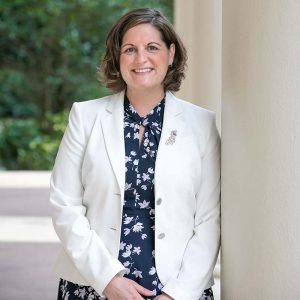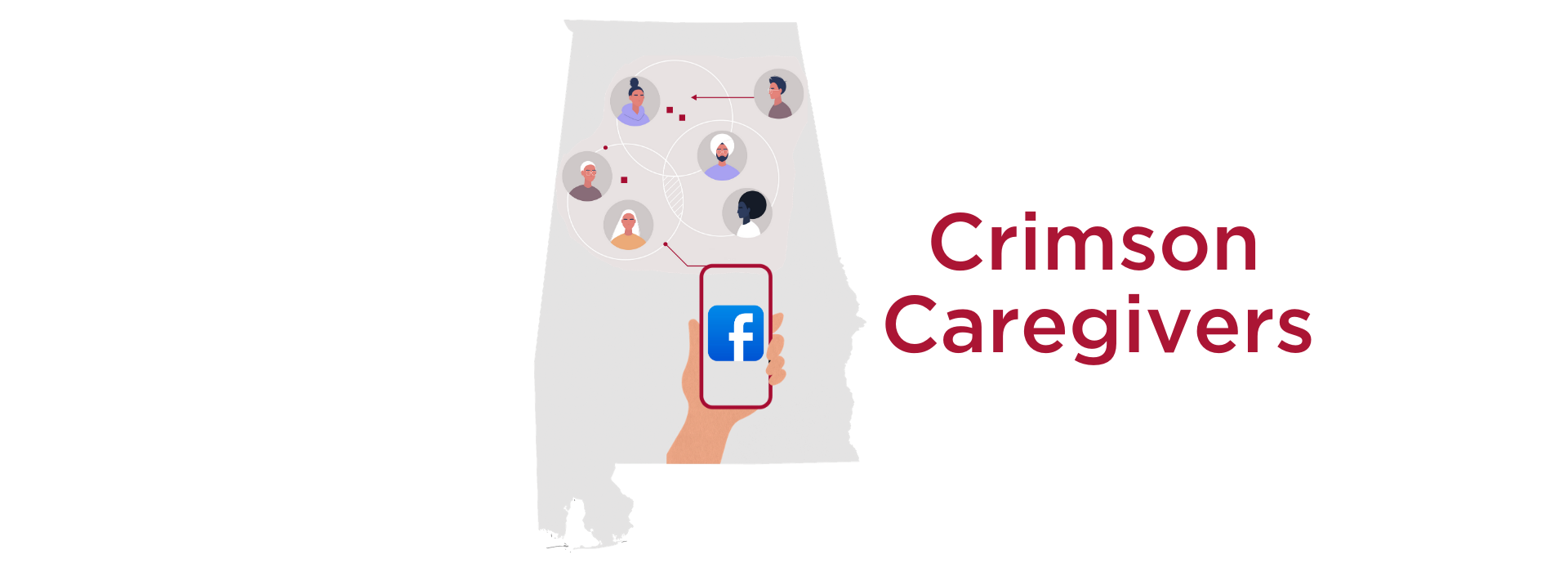Users were caregivers of people living with dementia in Alabama
By David Miller
March 3, 2021
Facebook’s popularity and ever-evolving features make it the most popular social media platform in the world.
While additions like “stories” and “Facebook Live” illustrate the platform’s continued appeal to users, one of its core features is foundational for engagement: groups.

Dr. Nicole Ruggiano’s RGC-funded helped her conceptualize her NSF project of crowdsourcing a database of resources for dementia care.
Facebook groups help people with shared interests connect, regardless of location. One might see this feature as essential for making connections nationally or internationally, but the feature is equally leverageable for those living within the same communities, who, for whatever reason, can’t connect in person.
For caregivers of people living with dementia, Facebook can be a valuable platform to share resources and de-stress, according to early findings in “Using Private Facebook Groups as a Platform for Facilitating Support Groups for Dementia Caregivers,” an RGC-funded study that recently closed.
The 12-week study, led by Dr. Nicole Ruggiano, associate professor of social work and DSW program director at The University of Alabama, found that, despite general privacy concerns of Facebook, the study’s eight local participants were comfortable participating in the Crimson Caregivers Private Facebook Support Group, citing the group’s small size, mutual support and useful information as reasons for their continued engagement.
“Caregivers want to connect, but the internet is very big,” Ruggiano said. “So, the smaller you can make the net for them, the better and safer they feel.”
Ruggiano drew inspiration from a colleague using private Facebook groups to support caregivers in a hospice agency and was eager to see if a similar approach could spur caregivers to engage one another and build rapport in a community setting.
Crimson Caregivers would provide more accessibility for critically isolated caregivers, as in-person groups are typically the only option for support. Additionally, caregivers’ familiarity with Facebook helped reduce technology barriers.
“People are already using Facebook, so they don’t have to learn a new technology, like Zoom or navigate an unfamiliar website,” Ruggiano said. “Facebook groups can be an opportunity for providers to figure out how to connect with patients and caregivers.”
Ruggiano said participation in Crimson Caregivers varied, with some users more active than others. But users found different ways to engage one another, like tagging someone if they knew they were interested in particular topics. The group would also see flares of engagement on posts of shared experiences, like in cases where the person they cared for become more resistant to care as their dementia progressed.
Additionally, those who had lower engagement reported that they still read and watched all of the group’s content around their individual schedules.
“Facebook offered synchronous content that turned into asynchronous content,” Ruggiano said. “It essentially became a library; you can’t do that in an in-person support group. You can’t ask questions to a support group speaker after they leave an in-person group.”
The small, localized nature of Crimson Caregivers would serve as the premise for Ruggiano’s National Science Foundation-backed project to develop a much-needed resource database for dementia care in Alabama. There isn’t currently a standard database or resource repository, so caregivers don’t know what’s available, Ruggiano said. This database would rely on crowdsourced data from caregivers and providers.
The NSF project is one of three funded tech-driven projects that Ruggiano’s currently steering.
“Caregivers are going through stressful situations – they’re depressed and have financial and emotional burdens,” Ruggiano said. “Because they’re isolated at home with a loved one, they’re alone and don’t understand there are people experiencing the same thing.
“Technology can connect these caregivers and really help support people, but I don’t think we’ve done the best job of figuring that out. I’m trying to find technology to leverage to do this.”
